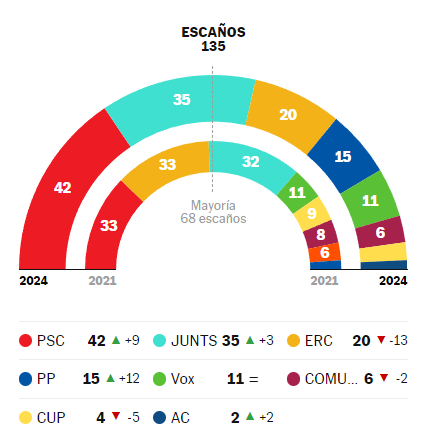There's a full-on spectator’s revolt underway at Madrid’s #TeatroReal. The audience at tonight’s production of Verdi’s ‘Un ballo in Maschera’ is in an uproar because while socially distant seating is happening at the floor-level, the cheap balcony seats are packed together.
https://twitter.com/EmiliaChacon/status/1307758766021111808
Although the theatre's management has told the crowd that they're running the show at 50% capacity, the images being tweeted out by spectators show some pretty full rows up top... And a lot of empty seats in the noble area down below.


https://twitter.com/AMariaMc/status/1307742604554010634


According to this great thread from @EmiliaChacon, the opera has started one hour after schedule and the curtain has come down just ten minutes later due to the audience's incessant complaints. It's unclear if the performance has been called off.
https://twitter.com/EmiliaChacon/status/1307759454729969664
All of this is happening with Madrid in the midst of COVID’s second wave. Reacting to the virus’s explosion in the Spanish capital, on Friday the regional government put the residents of several 'sanitary zones' under 'confinement' for a two week period.
elmundo.es/madrid/2020/09…
elmundo.es/madrid/2020/09…

The 'confined' zones are mainly located in the capital's working-class neighborhoods, highlighting the city's social inequality and the fact that the capital's poorer residents are far more exposed to the virus than their privileged neighbors.
elpais.com/espana/madrid/…
elpais.com/espana/madrid/…
Working-class madrileños in these neighborhoods often live in small, packed houses and can't telework. They use public transport with few social distancing measures in place in order to commute to service jobs in the wealthier parts of the city.
https://twitter.com/anluma99/status/1307647868581351425
The public health centers in many of these neighborhoods are overrun and lack enough staff to attend to the patients that are pouring in. And residents are increasingly fed up with bearing the brunt of a deadly pandemic while keeping the city running.
20minutos.es/noticia/438351…
20minutos.es/noticia/438351…
The "revolution in the cheap seats" (as @dorcarvajal cleverly dubbed it) may have happened in the refined ambience of the Teatro Real, but it's emblematic of a deeper split between the city's privileged elites (who can pay hundreds of euros to enjoy an evening of Verdi safely)... 

...And a larger portion of the population that is asking why, in a country where the Constitution states that all citizens have an equal right to have their health protected, the likeliness of contracting COVID is determined by the size of one's wallet.
elpais.com/sociedad/2020-…
elpais.com/sociedad/2020-…
Additional historical context for the riots-in-opera-house fans out there:
https://twitter.com/aitorehm/status/1307878560657534976
• • •
Missing some Tweet in this thread? You can try to
force a refresh





















